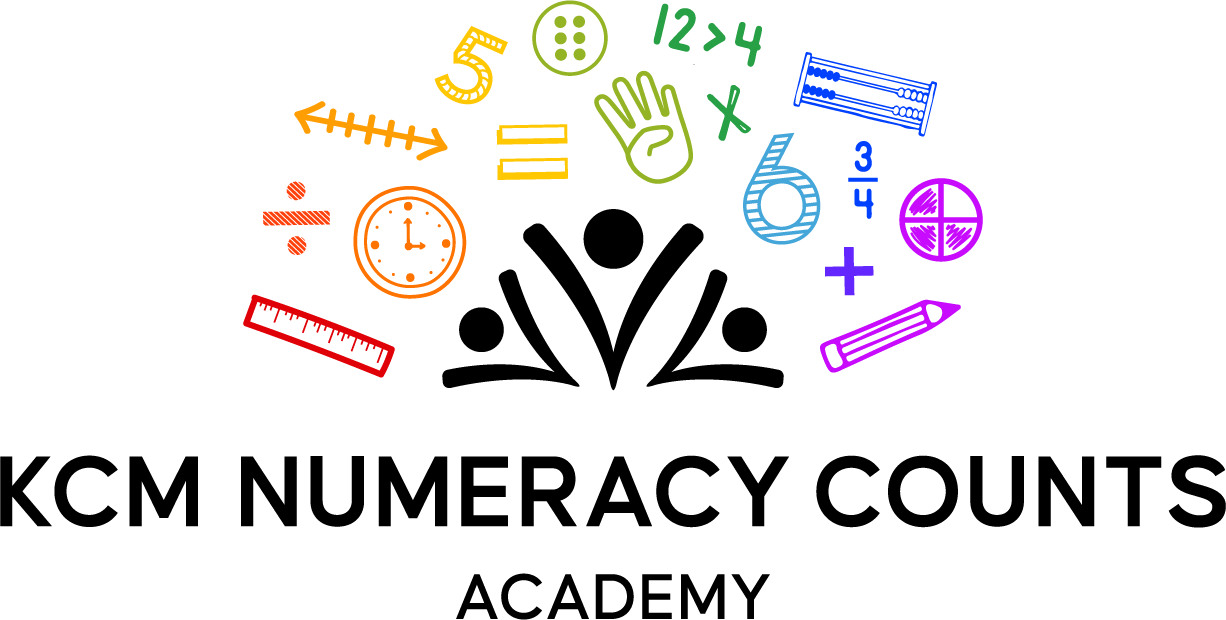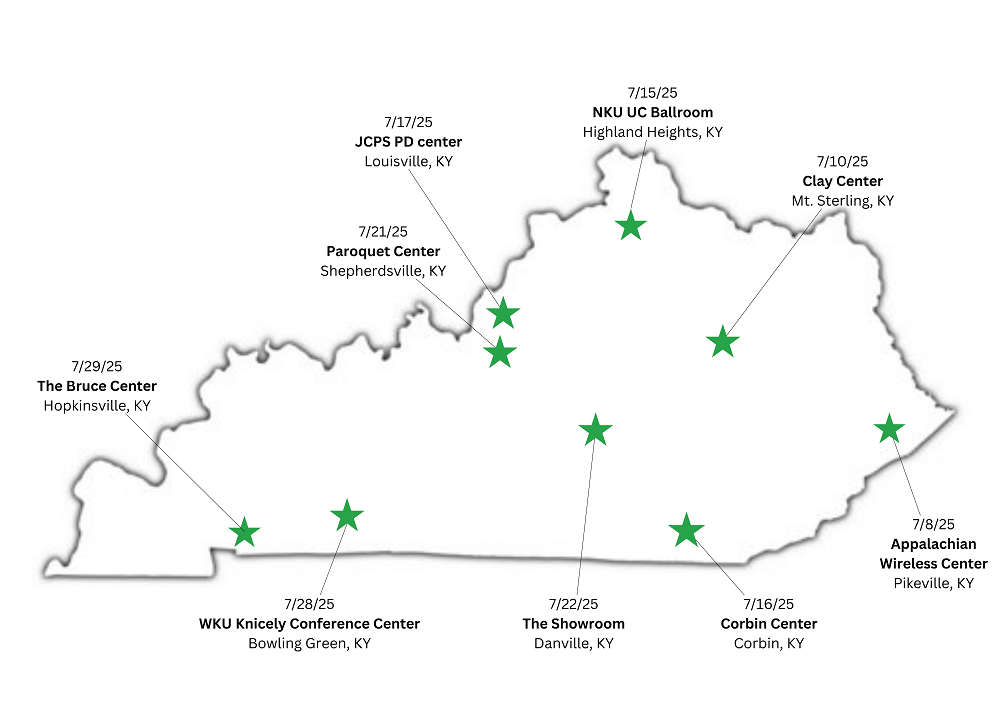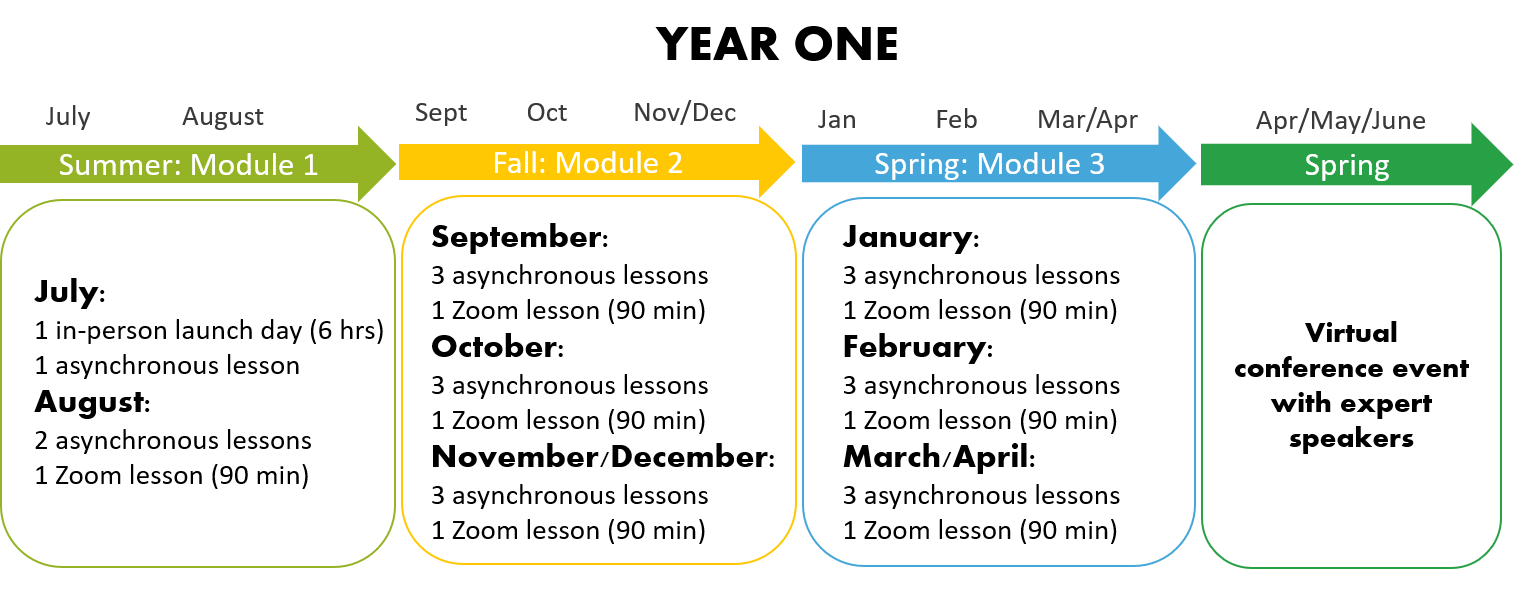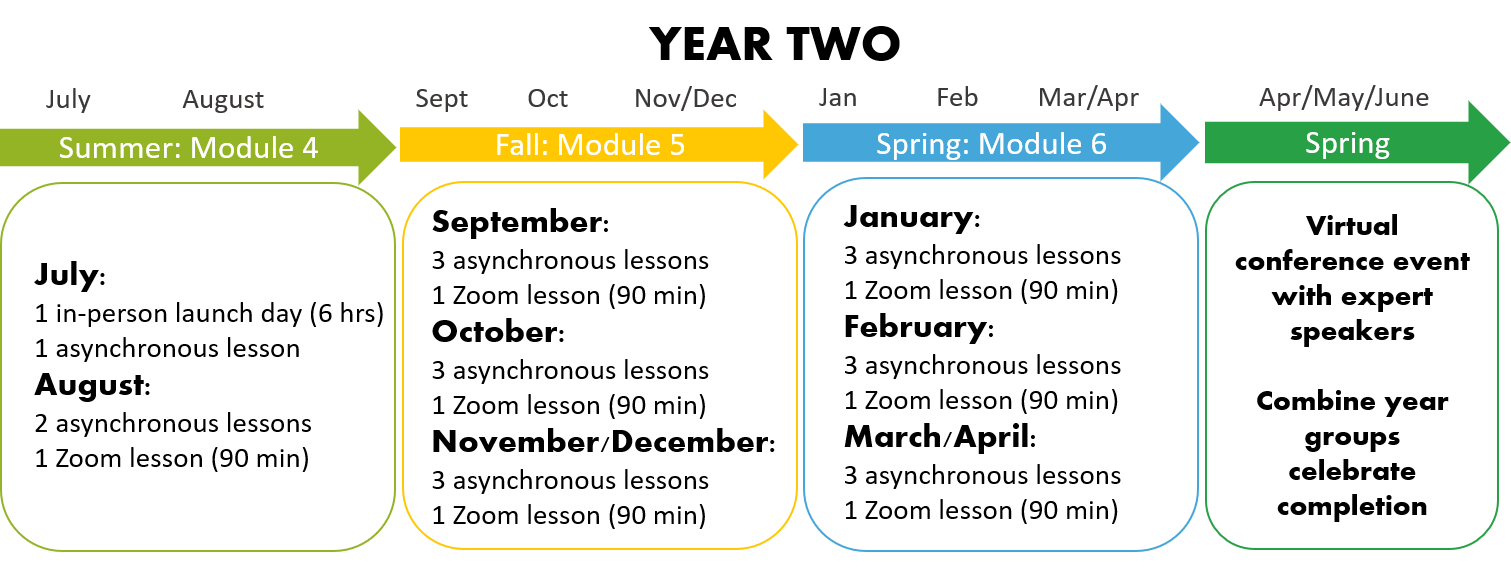
About the KCM Numeracy Counts Academy
Introduction
HB 162 (2024) states that "mathematics proficiency is essential for all Kentucky students to achieve the 12 academic goals established in KRS 158.6451. It is Kentucky's goal that all children have the skills necessary to demonstrate procedural skill and fluency, building from conceptual understanding to application, in order to solve real-world problems." The KCM Numeracy Counts Academy is one of the efforts established to achieve that goal (see the KDE's Numeracy Counts site for more).
The Academy is for Kentucky teachers by Kentucky teachers. It was collaboratively developed by educators throughout the Commonwealth, from organizations that include the University of Louisville, Northern Kentucky University, the University of Kentucky, Western University, the Kentucky Center for Mathematics, PIMSER, the regional educational cooperatives and elementary schools. These content creators produced modules of research-based, mathematics content to strengthen implementation of HQIR, deepen mathematical content knowledge, and expand pedagogical content knowledge.
Cadres
The Academy's targeted teacher groups are K-5 classroom teachers, special education teachers, intervention teachers, and coaches. These participants will be divided into ten cadres. Each cadre will have an assigned KCM Numeracy Counts Mentor to guide its participants through their collegial and collaborative learning experience.

The map above shows the dates and locations of the launch sites for the Cohort 1 cadres.
Modules
The program consists of six modules that begin in July and conclude in April of the second school year. The modules will include asynchronous lessons, classroom practice, and collaborative Zoom sessions. They will incorporate the Kentucky Academic Standards, Mathematics Teaching Practices, a focus on fluency and progression, and High Quality Instructional Resources (HQIR).
July-August Year One
Module 1 Content
Teachers will:
- understand the progression of math fluency standards in the Kentucky Academic Standards
- develop and implement instructional activities that target specific fluency skills
- engage in Teach-Practice-Assess
- understand the teacher and student actions that support Mathematics Teaching Practices
- engage in HQIR
September-December Year One
Module 2 Content
Teachers will:
- deepen their understanding of foundational and advanced number concepts
- design and implement tasks that provide meaningful engagement opportunites for all students to build foundational and advanced number concepts
- describe the development of students' fluency with various units and how these units might be represented in different forms
- engage in HQIR
January-April Year One
Module 3 Content
Teachers will:
- make sense of strategies based on place value, properties of operations and relationships between operations, using whole numbers, fractions, and decimals, and understand how students can reason abstractly and quantitatively
- use fluency routines to teach, practice, and assess students' use of computational strategies
- use computational strategies in classrooms to elicit student thinking
- engage in HQIR
July-August Year Two
Module 4 Content
Teachers will:
- form connections between models, in order to solve real-world problems, figures and their attributes, the attributes of a figure and their measurements
- look for patterns and make use of strucure to build connections between models, geometric figures, and measurements
- develop connections between fluency and geometry instruction
- engage in HQIR
September-December Year Two
Module 5 Content
Teachers will:
- flexibly model or represent situations or context problems and problems involving fractions
- engage in instructional routines that help students to make sense of math story problems and promote reasoning
- see the connections between fractions and whole numbers and the continuation of early development of number
- engage in HQIR
January-April School Year Two
Module 6 Content
Teachers will:
- help students build a strong foundation in understanding statistics as the process of analyzing data to make informed decisions
- foster an environment of meaningful mathematical discourse by posing purposeful questions and encouraging students to explain, justify, and critique their thinking
- engage in HQIR
Schedule
A high level view of the schedule is shown below. Specific dates and times will be provided as needed.

